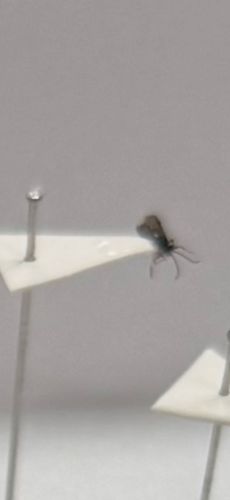Non-biting Midge
Scientific Name: Chironomidae
Order & Family: Diptera, Chironomidae
Size: 2-10 mm

Natural Habitat
Aquatic environments (larvae), terrestrial and often near water sources (adults)
Diet & Feeding
Larvae feed on algae, detritus, and other organic matter; adults typically do not feed or feed on nectar.
Behavior Patterns
Mating swarms often occur at dusk or dawn. Larvae are an important food source for aquatic animals. Adults are attracted to lights.
Risks & Benefits
Non-biting midges do not bite or transmit diseases to humans. They are an important part of the aquatic food web and serve as indicators of water quality. Large swarms of adults can be a nuisance.
Identified on: 9/19/2025